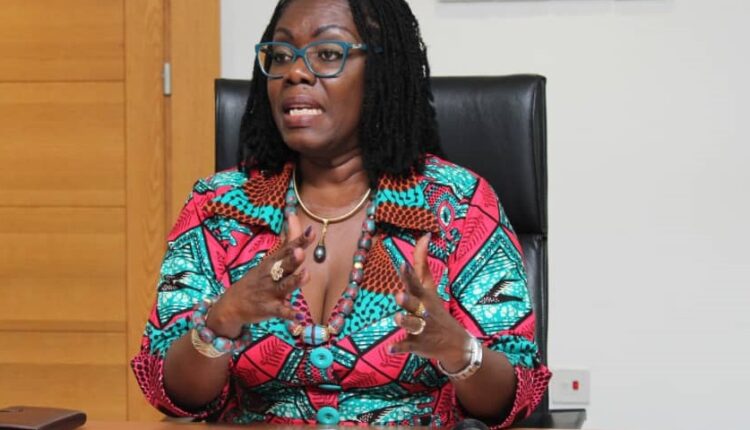Minister for Communications and Digitalisation, Mrs Ursula Owusu-Ekuful, has rallied authorities to position Ghana strategically to benefit from digitization.
Across the globe, countries are reaping huge economic benefits through technology and Mrs Owusu-Ekuful wants Ghana to do the same.
“The economic activity that results from this digital transformation is now referred to as the Digital Economy,” she explained.
“The Global Digital Economy is now estimated at nearly $3 trillion and governments all over the world have placed a high priority on transforming their countries and their economies into more digitally advanced ones to reap the benefits and efficiency gains associated with technology. We cannot afford to be left out”.
In a 2019 report, the World Bank Group identified mobile money (MoMo) as a major factor driving financial inclusion, particularly in Sub-Saharan Africa, with the number of accounts doubling to 21 percent between 2014-17.
The group observed that African e-commerce was also rapidly growing, at an estimated annual rate of 40 percent.
Over the past five years, there has been a tenfold increase across the region in the supply of new intermediaries such as incubators, accelerators, and technology hubs, amongst others, numbering more than 400 across Africa today, the report noted.
They estimated the digital economy in Africa to grow over 300 billion dollars by 2025 which has been exceeded already.
The group pointed out that Ghana has made substantial progress on financial inclusion, due in large part to growth in Digital Financial Services.
According to the World Bank’s Global Findex, the share of Ghanaian adults (over 15 years of age) with a formal financial account increased by 42 percent between 2014 and 2015.
As a result, nearly 6 in 10 adults had formal access in 2017.
With mobile account ownership increasing by nearly 200 percent between 2014 and 2017, mobile money has become the preferred payment alternative to cash when measured in terms of transaction volumes.
In May 2018, the Bank of Ghana mandated that all mobile money providers connect to GHLink, with full interoperability between mobile money providers and banks introduced in December 2018.
The government recently introduced a QR Code payment system.
This was after the implementation of a single platform to make online payments for government services.
With all these interventions, the MP for Ablekuma West pointed out that the government was “determined to accelerate our efforts to transform our country and our economy into one that is more agile and more competitive in this new digital age”.
In her welcome remarks at a Digitisation Readiness Workshop held in Accra, she pointed out that digital transformation was a key component of the government’s developmental agenda as an identified accelerator of development and growth of the country in a quest to build back from the disruptions of covid.
She pointed to the Ghana CARES ‘Obaatan Pa’ initiative under which the government intends to invest heavily in digitization.
The specifically agreed interventions for the Communication and Digitalisation sector is to :
- Invest, consolidate, strengthen and expand the national fiber network backbone in order to expand and improve internet connectivity. We must build on the existing assets we have and expand it to provide seamless infrastructure for connectivity, especially rural connectivity, for both the pub;ic and private sector.
- Promote increased digital literacy, to enable our citizens in every part of the country take advantage and use the digital infrastructure and services we are putting in place
- Support Ghanaian technology entrepreneurs to build tech hubs and to export IT-enabled services such as business process outsourcing (BPO) firms.
- Expedite implementation of Government digital initiatives (e.g. the National ID, digital address systems, etc.). I’m glad the NDC is now calling on its members to register for the Ghana card, after asking their members to boycott it. The national ID and all the other digital systems we have established are pivotal to the digital transformation of Ghana and form key pillars of the digital economy. We are moving towards integrating our databases and developing a cash light society.
The minister further emphasized the need to establish a clear baseline of what digital assets Ghana collectively owned and the state of readiness of institutions for an accelerated digital transformation.
“What do we currently have? What do we need to do to Digitalisation public sector institutions? Can we build on anything at all or do we need to start from scratch? We need to define digital assets to include physical infrastructure and software as well the intangibles”.
“It is only with this knowledge and insights that we will be able to plug the gaps in our digital landscape and make quick and meaningful steps towards delivering on our targets,” She said.



